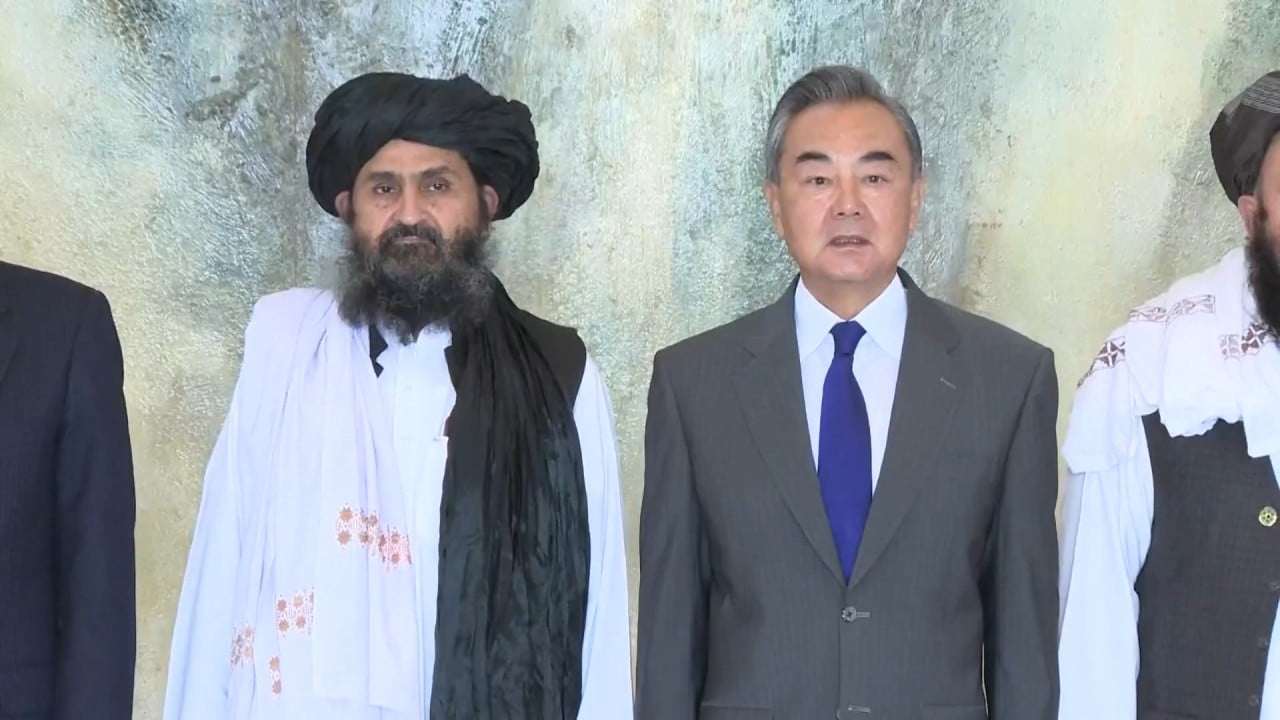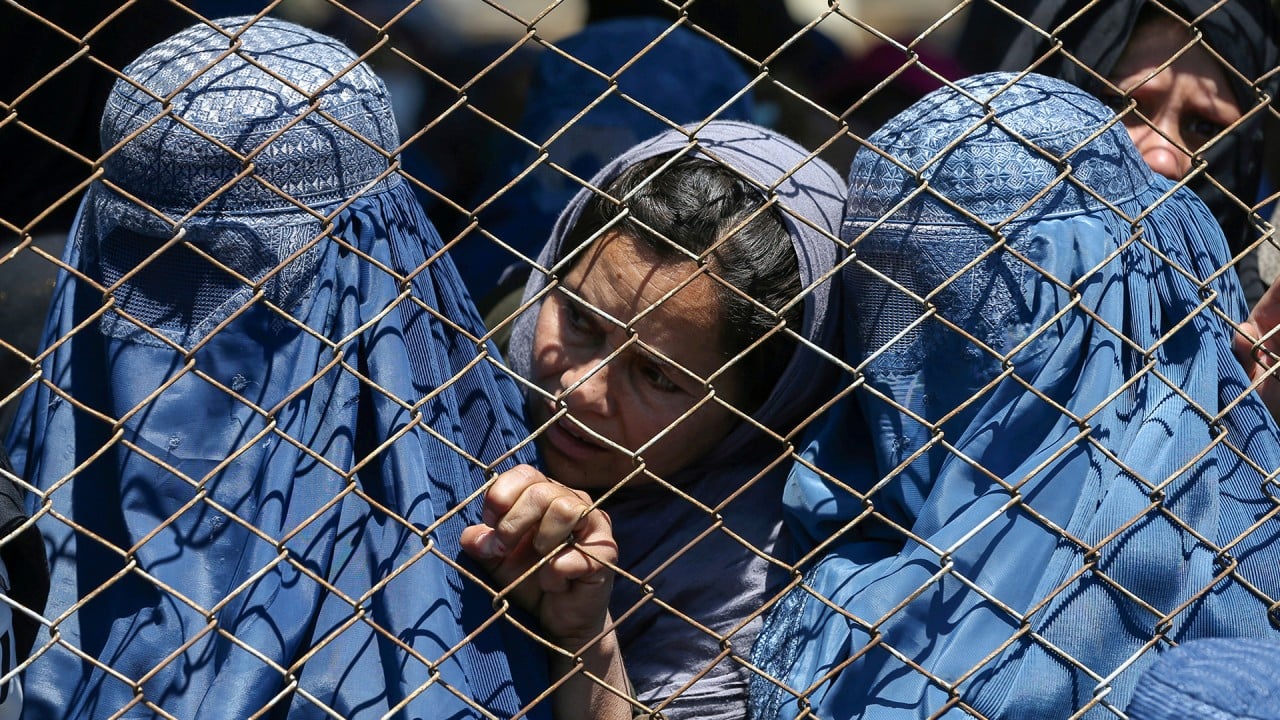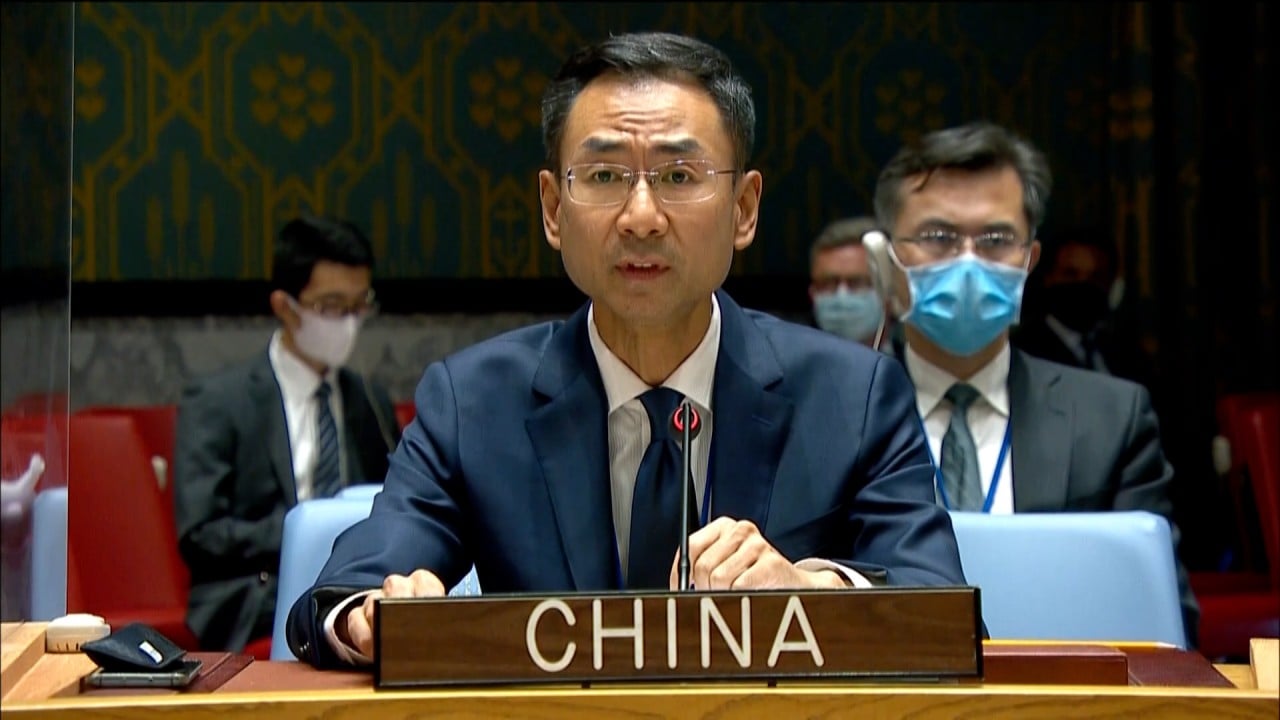
Afghanistan and its extremist elements are China’s problem now
- Despite the Taliban’s reassurances, Beijing’s options will remain limited if violence flares up
- But giving the Taliban economic support also risks strengthening extremist groups such as the East Turkestan Islamic Movement
US troops and a small cadre of diplomats are mired in a hasty, ill-planned departure from Kabul. That’s a massive problem for China. For the past 20 years, extremism has been kept at bay despite a losing war over nation-building. When the last cargo plane leaves, extremists will be in charge.
Humanitarian assistance totalled US$3.9 billion from 2002-2019. That did not root out extremist elements or guarantee a stable government. It did not unite historically warring tribal factions. And there’s little reason that similar efforts by Beijing will yield a better outcome.
Later that month, when Taliban leader Mullah Abdul Ghani Baradar met Chinese Foreign Minister Wang Yi in Tianjin, Baradar promised that “the territory of Afghanistan will not be used against security of any country including China”, according to Shaheen.
The Taliban’s assertions that they will not allow these groups to target other countries, like its other recent claims, cannot be taken at face value.
Several assurances have already been broken since the Taliban has taken power. Despite saying that people supportive of the previous government would not be targeted, Ghulam M. Isaczai, the UN representative for Afghanistan, said in an emergency meeting that Taliban fighters are going house to house searching for people on a target list.
Unless their radical interpretation of Islamic law has changed in the past 20 years, and there is little to suggest it has, the gains made over the last two decades will be rolled back.
The Taliban’s grip on power is also tenuous. It has not been able to quell violence as Americans and allied Afghans try to make their way to the airport to escape. The White House is now concerned about terrorist attacks within Afghanistan by enemies of the Taliban. And a nascent civil war is brewing with a rebellion of armed Afghans forcing the Taliban from several villages.
That was a step too far for a country still dominated by ethnic divisions and with no history of a modern unified state governed by a central Kabul authority. Political infighting, favouritism and corruption eroded any chance of success.
A trillion dollars later, the US military presence wound down, the Afghan military turned tail, and the capital fell in hours. No amount of money, military training or political support could stop the downfall.
So China is left with a conundrum. If it economically supports the Taliban, which tolerates extremist groups, Beijing may inadvertently strengthen these organisations.
The Taliban will need to pay extremists to remain compliant with their political aims and not cause trouble for Chinese development projects. With an estimated US$1 trillion to US$3 trillion in minerals and rare earth metals at stake, these financial incentives could be lucrative.
At the same time, the Taliban’s lack of governance experience could easily lead to civil strife as rival factions inevitably chafe at Kabul’s control. That outcome threatens Beijing’s ability to use its economic leverage for security guarantees.
Certainly, the Taliban will say all the right things in its pursuit of as much aid and development yuan as it can attract. But sooner or later, political aims will overtake economic gains.
The only real question is whether Beijing will be lulled into the same false confidence that plagued Washington in its attempt to influence Afghanistan’s leaders, all while being fleeced at the same time.
Brian P. Klein (@brianpklein) is a geopolitical and economic strategist and former US diplomat





